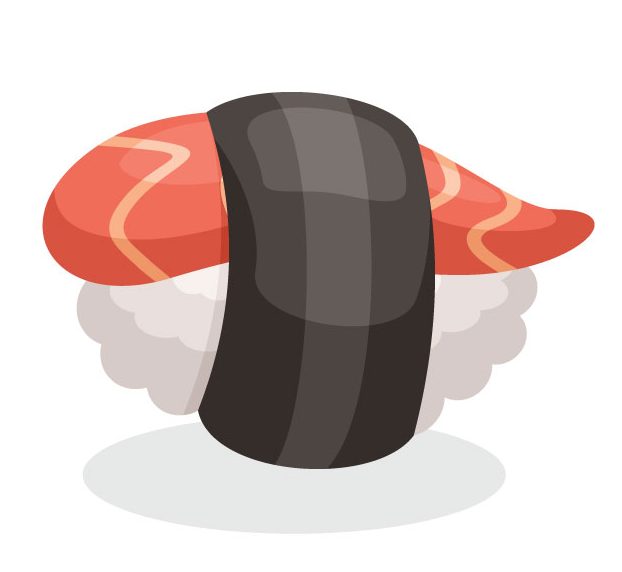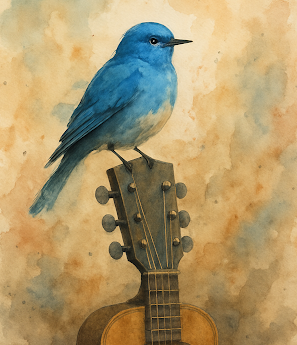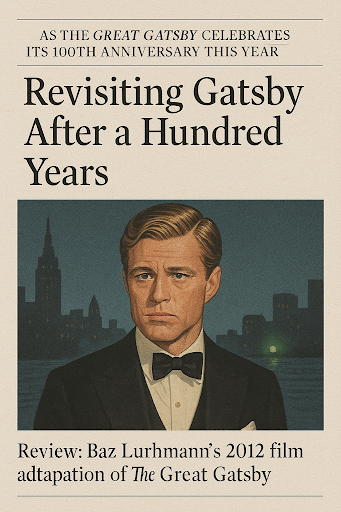Seafood and self-love: Harry Styles is changing the music industry for the better
At first glance, the new video for Harry Styles’ “Music for a Sushi Restaurant” might just seem like a fishy fever dream, but there’s more to it than what meets the eye. Veiled behind prosthetic tentacles, fake beards, and flashy seafood-themed scenery is a much deeper statement about the toxicity of the music industry.
The music video follows Harry’s perilous journey from sea to sushi. Depicted in the video as having the upper body of a man and the lower body of a squid, Harry washes up on the beach to the bewilderment of the staff at Gill’s Lounge, a fictitious seafood restaurant.
Originally, the Gill’s staff show Squid Harry off like a trophy and want to turn him into sushi for a profit, but when they find out that he can sing, they realize they can make more money by exploiting him for his voice. Eventually, he becomes burned out from performing at the lounge and loses his voice; when he no longer possesses his musical gifts, the restaurant staff have no use for him and end up making him into sushi.
Beyond the sparkling, outlandish, and at some points surprisingly dark facade, it’s impossible to ignore Styles’ subtle message about the pressures of stardom.
Harry first entered the spotlight when he was only 16 years old; now 28, he’s grown up in the music industry, which means it’s a cutthroat world he knows all too well.
As he’s grown into his own as a solo artist, expanding past his early One Direction days, Harry has begun to push back against industry standards, breaking boundaries with his self-expression—which is essentially what the “Sushi” music video tries to convey.
When Squid Harry washes up on the beach, this parallels him being initially discovered on the show “The X Factor” back in 2010. As new artists, Harry and his four 1D bandmates were picked apart by the media and not taken seriously as musicians, likely due to their fanbase of mostly teenage girls. The media in this situation is the Gill’s Lounge staff members, who are initially trying to cook Harry for a profit.
When the restaurant staff discover that Squid Harry is a talented singer, they realize that they are able to turn more of a profit by making him entertain guests at the lounge with his music and decide to spare his life. When Harry broke away from his boy-band beginnings and began making his own name in the industry, he became a lot more respected.
Near the end of the music video, Squid Harry loses his voice while performing. Now that the restaurant can’t exploit him for entertainment, they make him into sushi to milk the last of the money they can get out of him, even changing the name of their restaurant from Gill’s Lounge to Gill’s Sushi, and changing the logo to a picture of the newly sushi-fied Squid Harry.
This is a clear parallel to Harry’s fears as an artist—that when the music industry grows tired of him or he can’t entertain people like he used to, they will move on to the next big thing and throw him away like trash.
Pretty grim, right? Maybe not. Despite what seems like a comically morbid ending, the fact that this video exists at all reveals that there’s a happy ending for Harry in the industry, even if his fate in the video is decidedly gruesome.
Harry has always dealt with hate throughout his career. After breaking away from One Direction and starting his solo career, he received a lot of hate for pushing back against gender norms and experimenting with more alternative styles of music, meshing together a blend of soul and synth to bring a campy sound into pop culture.
The “Sushi” video clearly expresses Harry’s past fears. In an interview with the magazine “Better Homes and Gardens,” Harry said that he was done trying to conform to people’s expectations of him.
“I was like, in my lifetime, there will be 10 more people who burst onto the scene in that way, and I’m only going to get further away from being the young thing,” Styles said in the interview. “So, get comfortable with finding something else that makes you happy.”
Later in the interview, Harry expressed that he’s recently become much more comfortable with who he is and no longer measures his success by the opinions of others. When he first left One Direction, he was convinced that he could no longer make “fun music” if he wanted to make it big, but he proved himself wrong. Said Harry on the release of his latest album, “Harry’s House,” “It doesn’t feel like my life is over if this album isn’t a commercial success.”
In openly speaking about his refusal to change himself to compete with younger up-and-coming artists, Styles makes a statement that is equally powerful and vulnerable, which he reiterates in “Music for a Sushi Restaurant.” The only reason he is able to make ridiculous and fun music videos like the Sushi video is because he’s become comfortable enough with himself as an artist to be able to be free.
Harry Styles’ nonconformity is paving the way for a new, unique music industry—one where any person (or any half-squid) can sing to their heart’s content without fear of being “cooked.”








